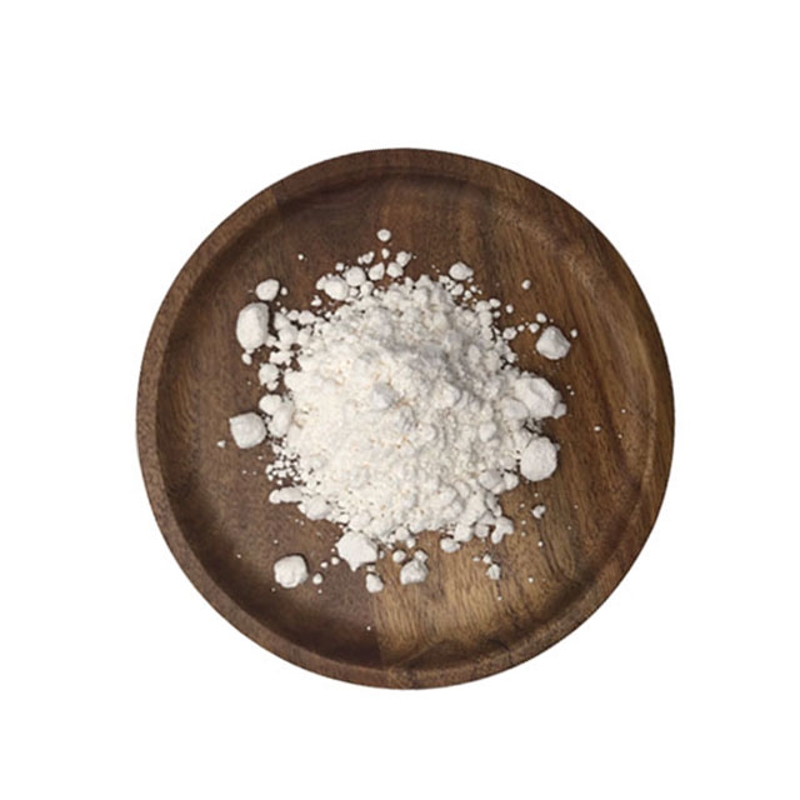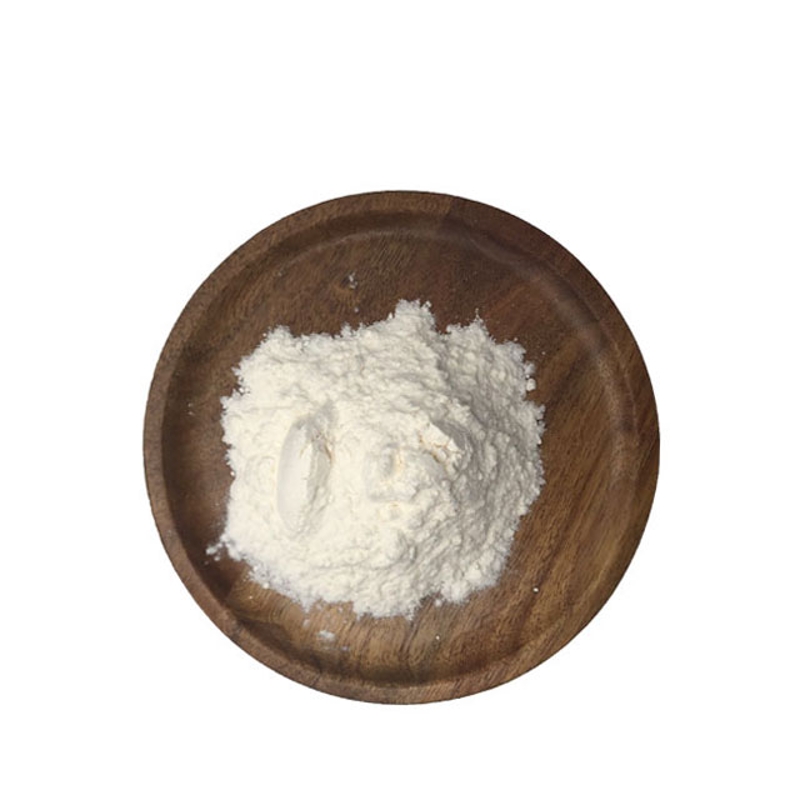-
Categories
-
Pharmaceutical Intermediates
-
Active Pharmaceutical Ingredients
-
Food Additives
- Industrial Coatings
- Agrochemicals
- Dyes and Pigments
- Surfactant
- Flavors and Fragrances
- Chemical Reagents
- Catalyst and Auxiliary
- Natural Products
- Inorganic Chemistry
-
Organic Chemistry
-
Biochemical Engineering
- Analytical Chemistry
- Cosmetic Ingredient
-
Pharmaceutical Intermediates
Promotion
ECHEMI Mall
Wholesale
Weekly Price
Exhibition
News
-
Trade Service
*Only for medical professionals to read and reference for 1 minute a day, to give you professional "talks" in the tumor circle! (If you need the original text, you can add the editor’s WeChat yxj_oncology to get it.
) Key points: JAMA Oncology: Interventions based on tumor patients’ symptoms failed to improve the patient’s symptom burden Placebo New Drug: Novel PROTAC protein degrader bavdegalutamide planned to initiate pivotal clinical study New Drug: FDA grants BCMA CAR-T orphan drug designation 01JAMA Oncology: Intervention based on symptoms of cancer patients fails to improve patient symptom burden Symptom monitoring intervention has increasingly become a cancer patient It is one of the standard care contents of the patients, but due to the lack of relevant clinical research, it is not clear whether it can bring benefits to patients
.
A related study recently published in JAMA Oncology showed that symptom monitoring intervention in hospitalized patients with advanced cancer did not improve the patient's symptom burden and health care burden, so routine symptom monitoring intervention is not recommended for such patients
.
Screenshot of the official website To assess the impact of symptom monitoring interventions on the symptom burden and health care burden of hospitalized patients with advanced cancer, the researchers conducted this randomized controlled study in 321 hospitalized patients with advanced cancer
.
Patients in the intervention and usual care groups reported symptoms daily via tablet using the Edmonton Symptom Assessment System (ESAS) and the four-item Patient Health Questionnaire-4 (PHQ-4)
.
The primary endpoint of the study was the proportion of days with improvement in patients' symptoms, and secondary endpoints were length of hospital stay and readmission rate
.
Results of the study showed that, in terms of the proportion of days with symptom improvement, patients in the intervention group versus usual care group had better ESAS-physical status [unstandardized coefficient (B)=−0.
02; 95% CI, –0.
10 to 0.
05; P=0.
56] , ESAS-overall status (B = −0.
05; 95% CI, –0.
12 to 0.
02; P=0.
17), PHQ-4 depression (B = −0.
02; 95% CI, –0.
08 to 0.
04; P=0.
55), PHQ There was no significant difference in terms of -4 – anxiety (B=−0.
04; 95% CI, –0.
10 to 0.
03; P=0.
29)
.
Patients in the intervention group compared with those in the usual care group were hospitalized (7.
59 vs 7.
47 days; B = 0.
13; 95% CI, –1.
04 to 1.
29; P = 0.
83) and 30-day readmission rate (26.
5% vs 33.
8%; risk ratio, 0.
73; 95% CI, 0.
48 to 1.
09; P = 0.
12)
.
02JAMA Oncology: Novel cellular immunotherapy does not improve survival in mCRPC patients, but may be safer than placebo Autologous dendritic cell immunotherapy DCVAC/PCa is a novel immunotherapy designed to activate the immune response against prostate cancer cells, thereby for the treatment of prostate cancer
.
Recently, a study investigating the efficacy and safety of DCVAC/PCa combined chemotherapy followed by DCVAC/PCa maintenance therapy in patients with metastatic castration-resistant prostate cancer (mCRPC) was published in JAMA Oncology
.
CONCLUSIONS: DCVAC/PCa combined with docetaxel plus prednisone (and subsequent DCVAC/PCa maintenance therapy) did not prolong overall survival (OS) in patients with mCRPC, but was well tolerated
.
Screenshot of the official website VIABLE double-blind, parallel, randomized controlled phase III clinical trial recruited mCRPC patients in 177 hospitals and clinics in the United States and Europe
.
Eligible patients were randomized (2:1) to receive DCVAC/PCa (n=787; including add-on and maintenance therapy; subcutaneously every 3 to 4 weeks for up to 15 doses) or placebo (n=395), both with Chemotherapy (docetaxel + prednisone) combined
.
The primary endpoint of the study was overall survival (OS)
.
There was no difference in OS between the DCVAC/PCa and placebo groups (median OS, 23.
9 months; hazard ratio, 1.
04; 95% CI, 0.
90 to 1.
21; P=0.
60)
.
There were also no differences in secondary endpoints (radiographic progression-free survival, time to prostate-specific antigen progression, or bone-related events) between the two groups
.
The incidence of adverse events during treatment was 9.
2% in the DCVAC/PCa group and 12.
7% in the placebo group
.
The most common treatment-related adverse events were fatigue (36.
2% vs 40.
1%), alopecia (29.
6% vs 34.
3%) and diarrhea (27.
5% vs 30.
9%)
.
03New drug: Novel PROTAC protein degrader bavdegalutamide plans to initiate pivotal clinical studies Recently, Arvinas announced the latest data showing that bavdegalutamide (also known as ARV-110), a novel PROTAC protein degrader targeting the androgen receptor (AR) , demonstrated evidence of antitumor activity and patient benefit in studies targeting mCRPC
.
Based on the results, Arvinas plans to initiate a pivotal clinical trial no later than the end of 2022 to evaluate bavdegalutamide in patients with mCRPC with disease progression or AR T878X/H875Y mutation after receiving next-generation hormone therapy
.
04New drug: FDA grants BCMA CAR-T orphan drug designation On February 14, Innovent and Reindeer Medical jointly announced that CT103A, a fully human-derived B cell maturation antigen (BCMA) CAR-T product jointly developed by the two companies, has been approved by the United States.
FDA orphan drug designation for the treatment of relapsed/refractory multiple myeloma (R/R MM)
.
CT103A has previously been granted "Breakthrough Therapy Drug" designation by the National Medical Products Administration (NMPA) for the treatment of R/R MM
.
References: 1.
Ryan D.
Nipp, et al.
JAMA Oncol.
2022.
Feb 10.
https://jamanetwork.
com/journals/jamaoncology/article-abstract/27890722.
Vogelzang NJ, et al JAMA Oncol.
2022 Feb 10 .
https://jamanetwork.
com/journals/jamaoncology/article-abstract/27890733.
https://mp.
weixin.
qq.
com/s/zfcPltZG3PibFNPM-BfuYw4.
https://mp.
weixin.
qq.
com/s /Mas43fJd0R4N7yTo8ReM6w
) Key points: JAMA Oncology: Interventions based on tumor patients’ symptoms failed to improve the patient’s symptom burden Placebo New Drug: Novel PROTAC protein degrader bavdegalutamide planned to initiate pivotal clinical study New Drug: FDA grants BCMA CAR-T orphan drug designation 01JAMA Oncology: Intervention based on symptoms of cancer patients fails to improve patient symptom burden Symptom monitoring intervention has increasingly become a cancer patient It is one of the standard care contents of the patients, but due to the lack of relevant clinical research, it is not clear whether it can bring benefits to patients
.
A related study recently published in JAMA Oncology showed that symptom monitoring intervention in hospitalized patients with advanced cancer did not improve the patient's symptom burden and health care burden, so routine symptom monitoring intervention is not recommended for such patients
.
Screenshot of the official website To assess the impact of symptom monitoring interventions on the symptom burden and health care burden of hospitalized patients with advanced cancer, the researchers conducted this randomized controlled study in 321 hospitalized patients with advanced cancer
.
Patients in the intervention and usual care groups reported symptoms daily via tablet using the Edmonton Symptom Assessment System (ESAS) and the four-item Patient Health Questionnaire-4 (PHQ-4)
.
The primary endpoint of the study was the proportion of days with improvement in patients' symptoms, and secondary endpoints were length of hospital stay and readmission rate
.
Results of the study showed that, in terms of the proportion of days with symptom improvement, patients in the intervention group versus usual care group had better ESAS-physical status [unstandardized coefficient (B)=−0.
02; 95% CI, –0.
10 to 0.
05; P=0.
56] , ESAS-overall status (B = −0.
05; 95% CI, –0.
12 to 0.
02; P=0.
17), PHQ-4 depression (B = −0.
02; 95% CI, –0.
08 to 0.
04; P=0.
55), PHQ There was no significant difference in terms of -4 – anxiety (B=−0.
04; 95% CI, –0.
10 to 0.
03; P=0.
29)
.
Patients in the intervention group compared with those in the usual care group were hospitalized (7.
59 vs 7.
47 days; B = 0.
13; 95% CI, –1.
04 to 1.
29; P = 0.
83) and 30-day readmission rate (26.
5% vs 33.
8%; risk ratio, 0.
73; 95% CI, 0.
48 to 1.
09; P = 0.
12)
.
02JAMA Oncology: Novel cellular immunotherapy does not improve survival in mCRPC patients, but may be safer than placebo Autologous dendritic cell immunotherapy DCVAC/PCa is a novel immunotherapy designed to activate the immune response against prostate cancer cells, thereby for the treatment of prostate cancer
.
Recently, a study investigating the efficacy and safety of DCVAC/PCa combined chemotherapy followed by DCVAC/PCa maintenance therapy in patients with metastatic castration-resistant prostate cancer (mCRPC) was published in JAMA Oncology
.
CONCLUSIONS: DCVAC/PCa combined with docetaxel plus prednisone (and subsequent DCVAC/PCa maintenance therapy) did not prolong overall survival (OS) in patients with mCRPC, but was well tolerated
.
Screenshot of the official website VIABLE double-blind, parallel, randomized controlled phase III clinical trial recruited mCRPC patients in 177 hospitals and clinics in the United States and Europe
.
Eligible patients were randomized (2:1) to receive DCVAC/PCa (n=787; including add-on and maintenance therapy; subcutaneously every 3 to 4 weeks for up to 15 doses) or placebo (n=395), both with Chemotherapy (docetaxel + prednisone) combined
.
The primary endpoint of the study was overall survival (OS)
.
There was no difference in OS between the DCVAC/PCa and placebo groups (median OS, 23.
9 months; hazard ratio, 1.
04; 95% CI, 0.
90 to 1.
21; P=0.
60)
.
There were also no differences in secondary endpoints (radiographic progression-free survival, time to prostate-specific antigen progression, or bone-related events) between the two groups
.
The incidence of adverse events during treatment was 9.
2% in the DCVAC/PCa group and 12.
7% in the placebo group
.
The most common treatment-related adverse events were fatigue (36.
2% vs 40.
1%), alopecia (29.
6% vs 34.
3%) and diarrhea (27.
5% vs 30.
9%)
.
03New drug: Novel PROTAC protein degrader bavdegalutamide plans to initiate pivotal clinical studies Recently, Arvinas announced the latest data showing that bavdegalutamide (also known as ARV-110), a novel PROTAC protein degrader targeting the androgen receptor (AR) , demonstrated evidence of antitumor activity and patient benefit in studies targeting mCRPC
.
Based on the results, Arvinas plans to initiate a pivotal clinical trial no later than the end of 2022 to evaluate bavdegalutamide in patients with mCRPC with disease progression or AR T878X/H875Y mutation after receiving next-generation hormone therapy
.
04New drug: FDA grants BCMA CAR-T orphan drug designation On February 14, Innovent and Reindeer Medical jointly announced that CT103A, a fully human-derived B cell maturation antigen (BCMA) CAR-T product jointly developed by the two companies, has been approved by the United States.
FDA orphan drug designation for the treatment of relapsed/refractory multiple myeloma (R/R MM)
.
CT103A has previously been granted "Breakthrough Therapy Drug" designation by the National Medical Products Administration (NMPA) for the treatment of R/R MM
.
References: 1.
Ryan D.
Nipp, et al.
JAMA Oncol.
2022.
Feb 10.
https://jamanetwork.
com/journals/jamaoncology/article-abstract/27890722.
Vogelzang NJ, et al JAMA Oncol.
2022 Feb 10 .
https://jamanetwork.
com/journals/jamaoncology/article-abstract/27890733.
https://mp.
weixin.
qq.
com/s/zfcPltZG3PibFNPM-BfuYw4.
https://mp.
weixin.
qq.
com/s /Mas43fJd0R4N7yTo8ReM6w







